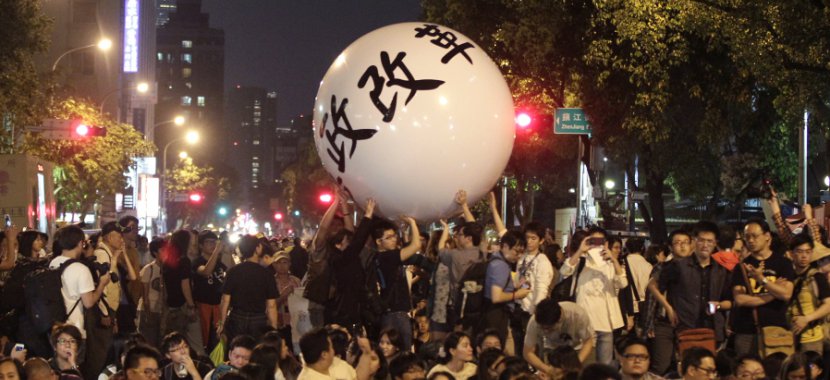These are unsettled times in Taiwanese politics. In recent months, prominent voices from across the spectrum have called for fundamental changes to the structure of Taiwan’s political system, ranging from simple reforms such as lowering the voting age to 18 to fundamental ones such as adopting a full presidential or parliamentary regime.
The impetus for constitutional reform has multiple sources. But at its core is a deeply problematic relationship between the executive and the legislature. When different parties controlled the two branches during the final years of the Chen Shui-bian administration, cooperation came to a standstill and governance suffered.
More surprisingly, executive-legislative confrontation returned with a vengeance in President Ma Ying-jeou’s second term, even though the ruling Kuomintang (KMT) held both the executive and a majority in the legislature. The prolonged struggle over cross-Strait agreements is only the most prominent of a series of political conflicts that have blocked the adoption of new policies and threatened the legitimacy of those that do pass. And it is not clear that the next administration and legislature will fare any better than previous ones.
For the 10th Annual Conference on Taiwan Democracy, we will consider proposals for reforms in the context of the strengths and weaknesses of Taiwan’s current constitutional structure. Among the topics to be considered at the conference are:
- Diagnosing the problems: What have been the sources and implications of political strife in Taiwan in recent years, both under divided and unified one-party control? What reforms, if any, might make these conflicts easier to resolve and increase the legitimacy of government policy-making?
- Executive type: Would switching to a different type of executive—presidential, parliamentary, or another form of semi-presidentialism—mitigate some of the disadvantages of Taiwan’s current system?
- Electoral systems: What are the problems with Taiwan’s current electoral system? What changes might mitigate some of the disadvantages?
- Direct democracy: What functions do Taiwan’s referendum and recall laws serve in practice? How would changes to these laws affect Taiwan’s democracy?
- Accountability institutions: How have Taiwan’s judiciary, Control Yuan, and prosecutorial agencies performed during periods of partisan conflict between the executive and legislative branches? How might their effectiveness be improved?
- Comparative perspectives: How does Taiwan’s recent experience with divided government and institutional reform compare to other Third Wave democracies in the region (e.g. South Korea, SE Asia) and more broadly (e.g. Latin America, Eastern Europe)?
Conference participants will help to develop a set of recommendations for a non-partisan reform agenda for Taiwan, one that is informed by a clear understanding of both the most pressing challenges facing Taiwan’s democracy and of best practices in other successful young democracies.

 RSS Feed
RSS Feed
